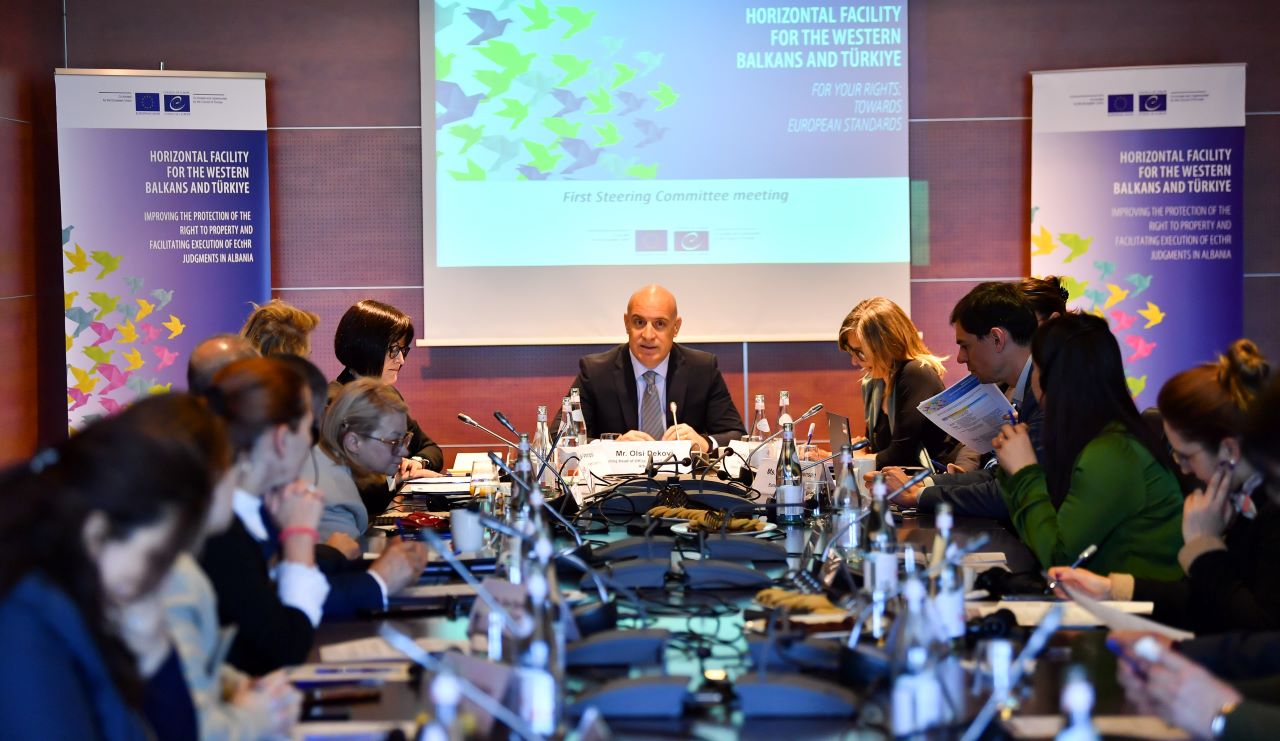Within the continuous efforts of the EU and Council of Europe to ensure that the rights-holders in Albania are respected in line with European standards, partners and beneficiaries of the action on “Improving the protection of the right to property and facilitating executions of ECtHR judgements and facilitating the execution of ECtHR judgements in Albania” met in Tirana. They took stock on the achieved results and discussed the continuation during the third phase whicha aims to provide even more targeted support to ensure the sustainability of the achieved results.
During the meeting, participants emphasised the need for a holistic support system for domestic legal professionals at all levels, starting with students, but also for lawyers and judiciary at all lower courts. The focus of the support provided in the context of the action is on the coherent application of existing legislation and quality reference to the European Court of Human Rights standards.
The primary objective of this initiative is to lower the pressure and backlog before the High Instance courts. The participants acknowledged that this is a critical issue that needs to be addressed to ensure the efficient protection of the right to property and the smooth execution of ECtHR judgments.
The meeting was attended by representatives from the European Union, the Council of Europe, the Albanian Ministry of Justice, State Advocate, High Judicial Council, Agency for the Treatment of Property, representatives of academia and civil society. All participants agreed on the importance of the initiative and the need for a concerted effort to achieve its objectives.
The activity was organised in the framework of the action “Improving the protection of the right to property and facilitating executions of ECtHR judgements and facilitating the execution of ECtHR judgements in Albania” under “Horizontal Facility for the Western Balkans and Türkiye III”.


